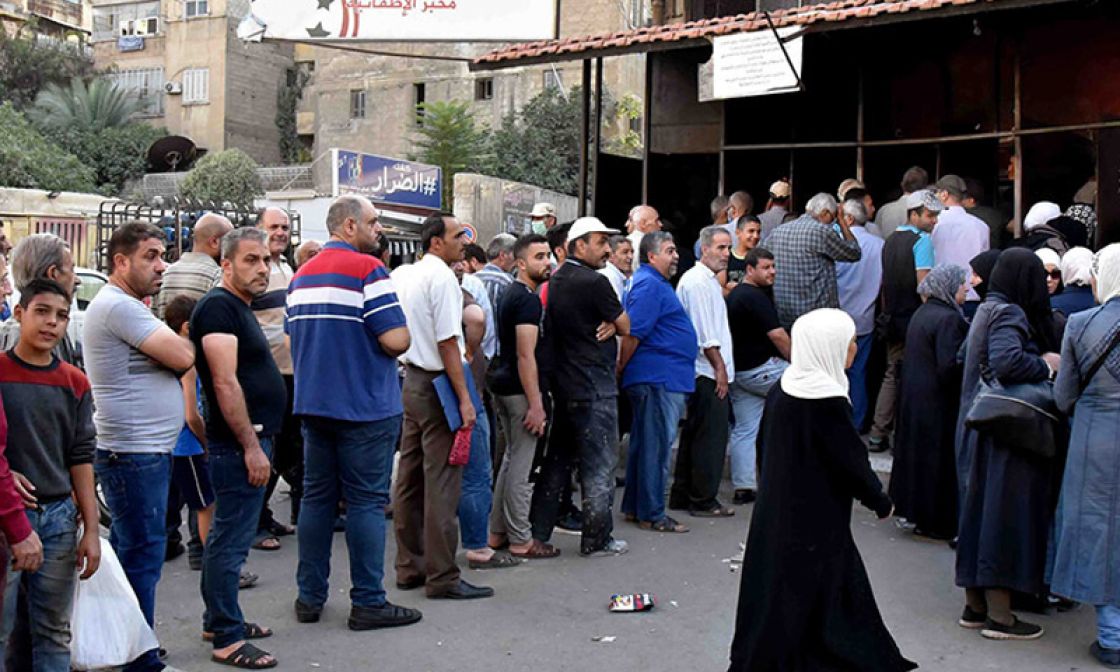- Articles
- Posted
The Situation is “Most Dire” in All of Syria
During the Security Council session held today, Monday, March 29th, on the humanitarian situation in Syria, it was really peculiar to hear from Mr. Sergei Vershinin, the Russian Deputy Foreign Minister, while describing the humanitarian situation in Syria, saying: “It is telling that the most dire situation is in the regions not controlled by Damascus; it is in the northeast and northwest of Syria”.
We do not know if this really expresses the Russian position, which we have not known it to be so, or whether it is the result of a lack of information by Mr. Vershinin specifically. The truth of the matter is that the humanitarian situation is very bad in all regions of Syria, so bad and so dire that the comparison between one region and another loses any meaning, and becomes even more meaningless if the comparison revolves around determining “which is the worst”!
The realities in Syria today say that there are “three economies” in crisis, living side by side. In the first, which are the regime-controlled areas, the most severe impact of the Western sanctions and its suffocating and deadly blockade of Syrians appears, and the results of this are evident through the rapid deterioration at all levels. However, what should be quite clear is that the giant corruption controlling all aspects of the Syrian state apparatus is actively contributing to this strangulation.
In the northeast and northwest regions, in which Syrians are also living in miserable conditions, things are being done in a somewhat different way, where sanctions are eased or tightened selectively, with the aim of linking each of these two regions to a neighboring regional economy, so that the isolation of the three Syrian regions from each other deepens. Based on this, the Western obsession with cross-border crossings can be understood. These different ways of dealing with the Syrian regions reach the point that the facts, although naturally fluctuating, indicate that sometimes, and in certain aspects (electricity, for example), there is a tangible improvement in the conditions of life in the northwest and northeast regions, more than that in the areas under the control of the regime. The clear goal behind this is to deepen the link between each of the northeast and northwest with northern Iraq and Turkey, respectively, at the expense of their connection with each other and with the rest of Syria.
The western hysteria against any internal crossings among the three regions stems precisely from this point, as the internal crossings would revive the natural economic cycle of Syria, and this in itself is required not only to save Syrians in the three regions from their disastrous conditions, but also to save Syria itself from partitioning.
None of this means at all that the situation of Syrians in one region is “better” than in another, especially since all Syrian regions are generally moving towards the worse day after day. Perhaps what Mr. Vershinin said in his same intervention about the percentage of Syrians who are living under the poverty line having exceeded 90% alone is sufficient to express the severity of the situation.
The humanitarian situation in Syria is undoubtedly deeply linked to the criminal impact of Western sanctions. However, they are also linked to the severing of the country and the domination of the giant corruptors and extremists from the various Syrian sides who are hindering the political solution and are practically on the side of the warlords, and are trying to look for “distinctions” and “comparisons” among the Syrian regions, to preserve their dominance on the one hand, and to extend the crisis and postpone the solution on the other. This whole logic is against the interest of Syria and Syrians.
Addressing the Syrian situation in a comprehensive manner, as we have repeatedly emphasized, should be based on the premise that the Syrian humanitarian tragedy that all Syrians are experiencing in all regions of Syria and abroad should stop sooner rather than later. Achieving this exclusively goes through the full implementation of UNSC Resolution 2254, that is, through a comprehensive political solution in which the Syrian people determine their own destiny.



 Political Editor
Political Editor